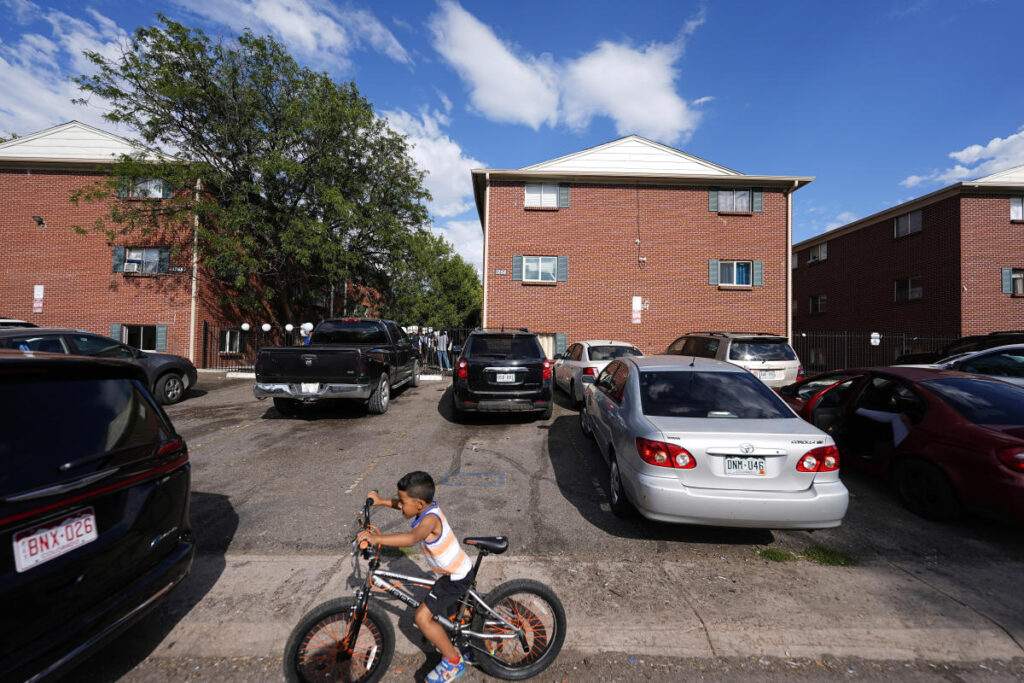In a shocking incident that underscores ongoing issues of crime within certain areas of suburban Denver, Aurora Police Chief Todd Chamberlain reported that a pair of Venezuelan immigrants were brutally attacked by a group of 13 to 15 armed assailants at their apartment complex. The attack involved the victims being bound, pistol-whipped, and terrorized in what authorities believe to be a gang-related incident. This particular location had become a well-known site for crime with prior notoriety, heightened by a viral video that had circulated during the last presidential campaign. In that video, armed individuals were seen confronting residents, leading some to falsely claim that the area was under the control of Venezuelan gangs like Tren de Aragua. City officials have sought to combat such narratives, emphasizing that these incidents are isolated and not representative of the broader community.
During this latest incident, which unfolded over approximately five hours, one of the victims sustained stab wounds but is expected to survive. Police investigations indicate that the attackers are likely connected to Tren de Aragua, a gang that originated in a notorious Venezuelan prison and has since expanded significantly due to the mass exodus of Venezuelans fleeing dire economic conditions. Chamberlain characterized the assault as indicative of the gang’s activities and affirmed his commitment to combating crime within the community, noting a recent decline in police calls associated with the apartment complex.
In a particularly troubling aspect of the incident, after the victims were taken to another unit within the complex, they were threatened into silence about the assault. However, following their release, the couple displayed remarkable courage by alerting authorities after seeking refuge at a friend’s home. Currently, 14 individuals have been detained, although no formal arrests have been made, as investigations continue. The condition of the victims remains uncertain as they received medical attention following the attack.
The ongoing compromises to public safety at this complex have prompted local officials to pursue measures to close the site, deemed a “criminal nuisance.” Allegations suggest that the property’s owner, CBZ Management, has neglected maintenance, thereby fostering an environment that allows criminal activities to flourish. Reports have indicated that the company has faced challenges in managing the property due to supposed gang control, and they did not contest the city’s plans for legal action. Their public response hinted at a hope for lessons to be learned by the broader community.
The issue of managing crime in such complexes not only points to local governance problems but also highlights systemic challenges. Chamberlain lamented the lack of adequate federal response to the influx of immigrants, notably Venezuelans, into cities like Aurora. He critiqued the existing systems for failing to address the root issues and emphasized that local authorities are left picking up the pieces of a troubled process. This commentary reflects a broader concern, as many cities nationwide face similar predicaments amid surges in immigration and related challenges.
In summary, the alarming incident of violence at the Denver suburb’s apartment complex serves as a stark reminder of the pressing issues faced by communities grappling with crime linked to gang influence, particularly from groups like Tren de Aragua. Authorities are actively working to address the ramifications of such crimes and propose measures aimed at improving safety and accountability within the area. As investigations continue and legal actions progress, the situation reveals strains not only on local law enforcement but also on the frameworks governing immigration and community welfare in a diverse and changing society. The complexities surrounding these issues highlight the urgent need for comprehensive strategies that prioritize public safety, effective management of properties, and responsive federal policies tailored to the challenges of mass migration.

